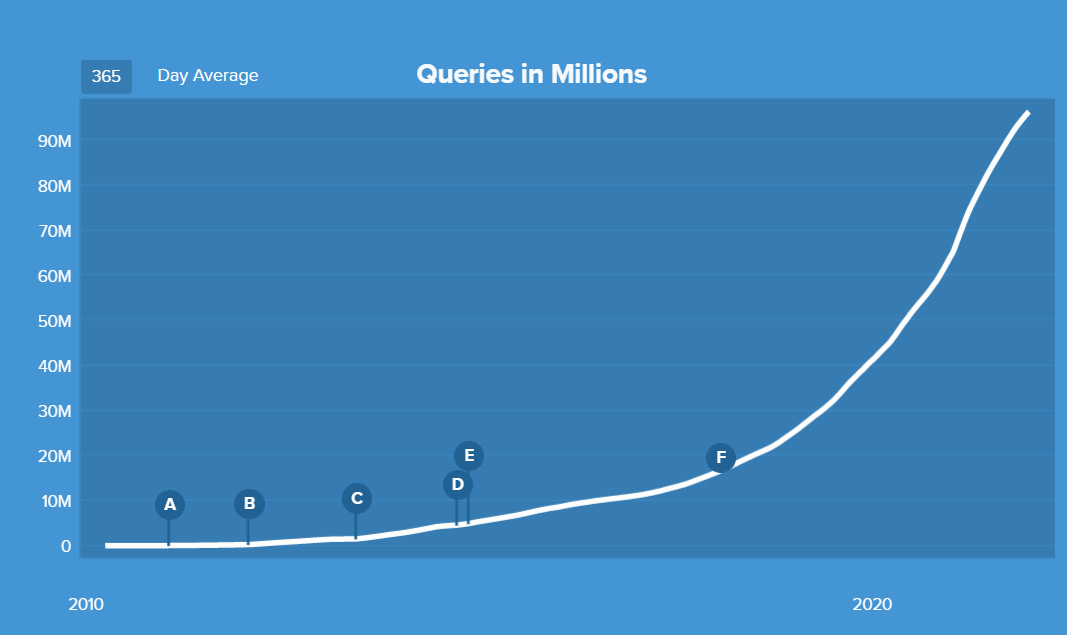
The privacy-focused search engine DuckDuckGo continues to grow rapidly, with the company now averaging over 100 million daily search queries and growing by almost 47% in 2021.
Unlike other search engines, DuckDuckGo says they do not track your searches or your behavior on other sites. Instead of building user profiles used to display interest-based ads, DuckDuckGo search pages display contextual advertisements based on the searched keywords.
This means that if you search on DuckDuckGo for a television, that search query will not be used to display television ads at every other site you visit.
Furthermore, to build their search index, the search engine uses the DuckDuckBot spider to crawl sites and receive data from partners, such as Wikipedia and Bing. However, they do not build their index using data from Google.
DuckDuckGo shows rapid growth
While Google remains the dominant search platform, DuckDuckGo has seen impressive year-over-year growth.
In 2020, DuckDuckGo received 23.6 billion total search queries and achieved a daily average of 79 million search queries by the end of December.
In 2021, DuckDuckGo received 34.6 billion total search queries so far and currently has an average of 100 million search queries per day, showing a 46.4% growth for the year.

While DuckDuckGo's growth is considerable, it still only has 2.53% of the total market share, with Yahoo at 3.3%, Bing at 6.43%, and Google holding a dominant share of 87.33% of search engine traffic in the USA.
However, as people continue to become frustrated with how their data is being used by tech giants like Google, Facebook, Microsoft, and Apple, we will likely see more people switch to privacy-focused search engines.
To further help users protect their privacy, DuckDuckGo released an email forwarding service in 2021 called 'Email Protection' that strips email trackers and allows you to protect your actual email address.
They also introduced 'App Tracking Protection for Android,' which blocks third-party trackers from Google and Facebook found in apps.
More recently, DuckDuckGo announced they are releasing a DuckDuckGo Privacy Browser for Desktop that will not be based on Chromium and will be built from scratch.
"No complicated settings, no misleading warnings, no "levels" of privacy protection – just robust privacy protection that works by default, across search, browsing, email, and more," explains a recent blog post about the new browser.
"It's not a "privacy browser"; it's an everyday browsing app that respects your privacy because there's never a bad time to stop companies from spying on your search and browsing history."
For those looking to take back control of their data and add more privacy to their search behavior, DuckDuckGo may be the search engine for you.


Comments
GT500 - 2 years ago
Is the number of total search queries for 2020 off, or is the number for 2021 off?
Lawrence Abrams - 2 years ago
Fixed
GT500 - 2 years ago
Looks good. ;)
jimmyjones1256 - 2 years ago
I dropped Google search on my phone due to it being a pain to use a VPN with it. Also if you aren't signed in then you have to accept the privacy policy every time.